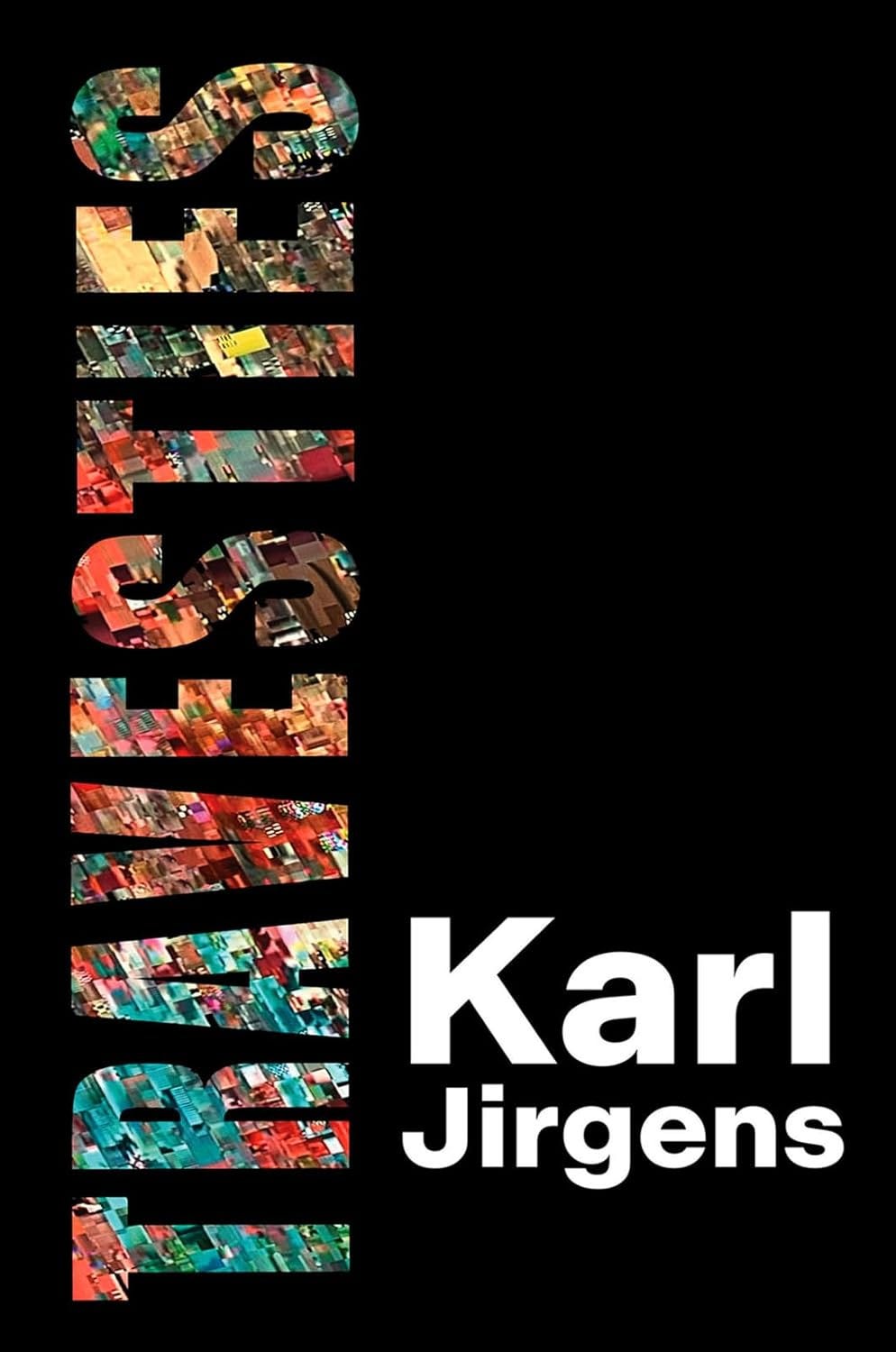Travesties by Karl Jirgens
Reviewed by Gordon Phinn
Having abandoned myself to prolonged immersion in The Razor’s Edge (2023) Karl Jirgens’ then most recent effusion of fine prose, I approached the poems of Travesties with more than a small measure of warm anticipation. As I casually dipped into its pages, more at random than any game plan of critical approach, I was gratified to find myself plunging into every stanza in the spirit of excited discovery. Even the Lingo section, where postmodern language plots and semaphores its intentions as it lurks behind smokescreens of dense interaction and referential obscurity, the sort of thing that will entertain the litterateurs amongst us, rather than that altogether more amorphous personage the ‘common reader’, awakened that slumbering mood of delight in this would-be critic.
Altogether too witty and charming, Jirgens shows all too well that he is much more than the legendary founder, curator, and editor of Rampike, (as if that was not enough!) he is a more than worthy wordsmith, a creator of distinction and sophistication on easy par with any number of more revered names. The collection, divided into five distinct sections, which the author notes, “features gentle Travesties, Homages to those who have touched me, Lingo experiments, oceanic Raptures and Dreamscapes which embrace surrealism”, explores more than its share of literary territories.
The upended nursery rhyme, Jack and Jill REDUX, where water is actually at the bottom of the hill but Jill, despite her contemporary complaints, still goes tumbling after. The Late Poem, where the poem is treated as a sentient being, a sovereign entity, who, after a litany of whiny excuses (“the dog ate my shoes, the pilot was drunk, a sinkhole swallowed my bus”), finally “snorts with derision, spins on its heel, and exits haughtily, planting fuming footnotes along the garden path”. Parenthesis and Apostrophe, where punctuation comes alive to refuse its snotty delegation to mere functionality. A debate ensues “On the other hand, Apostrophe rarely listened to what Parenthesis said. Instead Apostrophe spent much of the time talking out loud to no one in particular. Apostrophe was like that.”
Hommages, name checks, gossips and gives praise to the likes of Eugene MacNamara, Alistair Macleod, Robert Kroetch, Raymond Souster, Bill Bissett, Len Gasparini, Judith Fitzgerald, Phil Hall, Kathy Acker, Frank Davey, Julia Kristeva and the inevitable Al Purdy. Valentines to long ago and far away, they open up the mystery of forgotten moments, helping us find ourselves there despite our absence. Personal narratives not only nuanced but tricky, each sinuously trapping the reader with their intimacies and nervy vacillations. Mere cleverness can be cloying, but not when it is handled with the deft self-effacing touch Jirgens employs here, so seemingly effortless.
In the midst of the full tilt carnival of literary invention, I found the occasional descent, or maybe lapse, into brevity, spoke to me most clearly, but then I have often been branded a cheerleader for concision.
Words We speak words. Distant galaxies cannot hear our intonations, distances mean little, kilometers, or meters, reduced to six feet. Perhaps a bit more his metered time, how far apart are we now? We speak, utter measure meters, our rhythms speak distances, we know the space between us is immeasurable, immediate. Frailty for Penn Kemp Desires and common wants slavishly follow our beings, shadowing frailties within our frailties, echoing who/what we are, unnervingly making lucid, parts unknown, confronting us with our own dread. Some seek to master such imagos, seek strength, beauty, truth, while clinging to what isn’t there, what never was. Such unfastened desires! Perhaps better to embrace frailty, adore each other for what we cannot be. *
There is no lack of polished and innovative verse in the world of English language poetry, whether emanating from the UK, US or any of the Commonwealth counties, of which I hear we are still very much a part. We are, I feel, spoilt rather than starved. Spare me the complaining over financing, distribution and unfairly favoured subcultures and tribes. The compass once liberated from the closet’s dusty cobwebs can show the conveniently lost where to take their hunches. The tradition, expanding from the hallowed cloister of the canon, from Chaucer to Billy Collins, Whitman to Purdy, Aphra Behn to Virginia Woolf, or Tristram Shandy to Finnegan’s Wake, the trail never ceases from its fruitful meandering, despite the politicizing of variant viewpoints.
Travesties continues that fruitful meander to nowhere but here. Here and now, hitched to the past yet leading the way.
About the Author
Karl Jirgens is the former English Department Head and Chair of the Creative Writing Program at the University of Windsor, is author of five books and editor of two. With Beatriz Hausner, he co-edited the “Collaborations” issue of Open Letter magazine. His scholarly and creative works are published globally. Jirgens is a member of the Latvian diaspora. Both of his parents were WW2 refugees.
About the Reviewer
Gordon Phinn, a longtime resident of Oakville, Ontario, has been active in literary production since 1975, with a number of titles in a variety of genres to his credit: Non-fiction, fiction, poetry, criticism, and memoir. His early critical work for Books In Canada and Paragraph are collected in It’s All About Me, and his four year reviewing stint at WordCity will be soon available as Joy In All Genres. Other recent essay collections: Bowering and McFadden, Laughing At The Universe Of Lies and Consciousness: A Primer. A novel, An American In Heaven, a memoir Moving Through Many Dimensions and a poetry collection, Winter, Spring and Eternity’s Seduction. He is currently editing a collection of essays in celebrating the work of Laurence Hutchman, to be published by Guernica in 2026.
Book Details
Publisher : Exile Editions
Publication date : Sept. 1 2025
Language : English
Print length : 126 pages
ISBN-10 : 1990773427
ISBN-13 : 978-1990773426





Looking forward to reading it, Karl!
What a glorious review, and very apt! Congratulation, Karl... and Gordon. Thanks for all your reviews, @theseaboardreview !